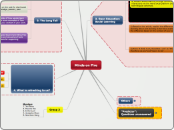arabera Matt D 6 years ago
234
Education, Mental Health and Well-Being
Addressing mental health in education is crucial as students face increased challenges that impact their well-being. Personalized interactions between students and teachers can lead to better behavior and understanding when breaks are needed.









